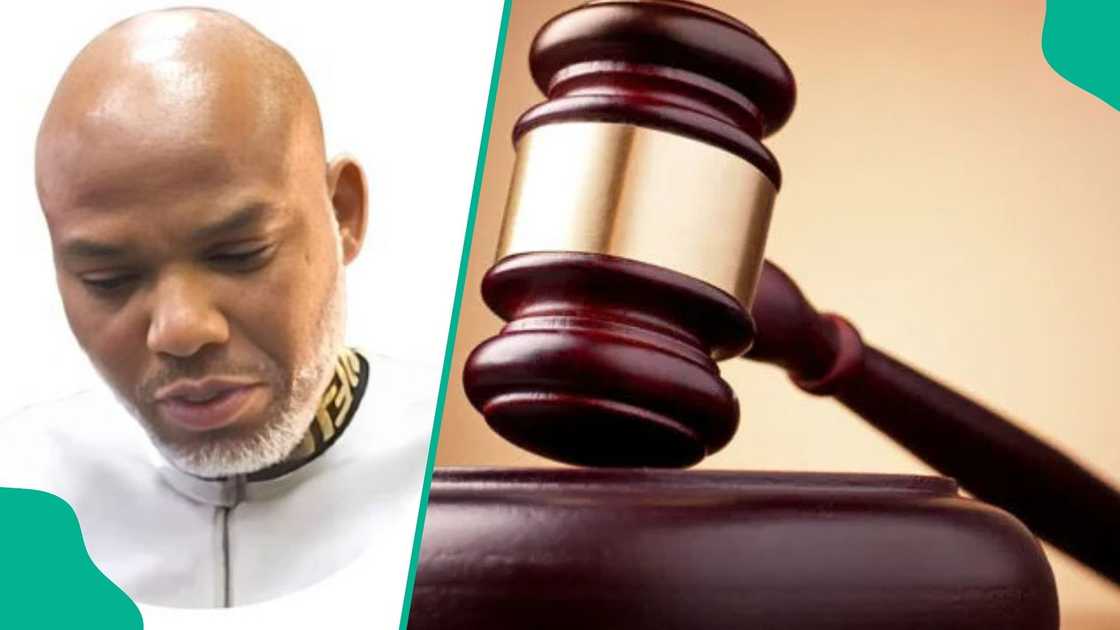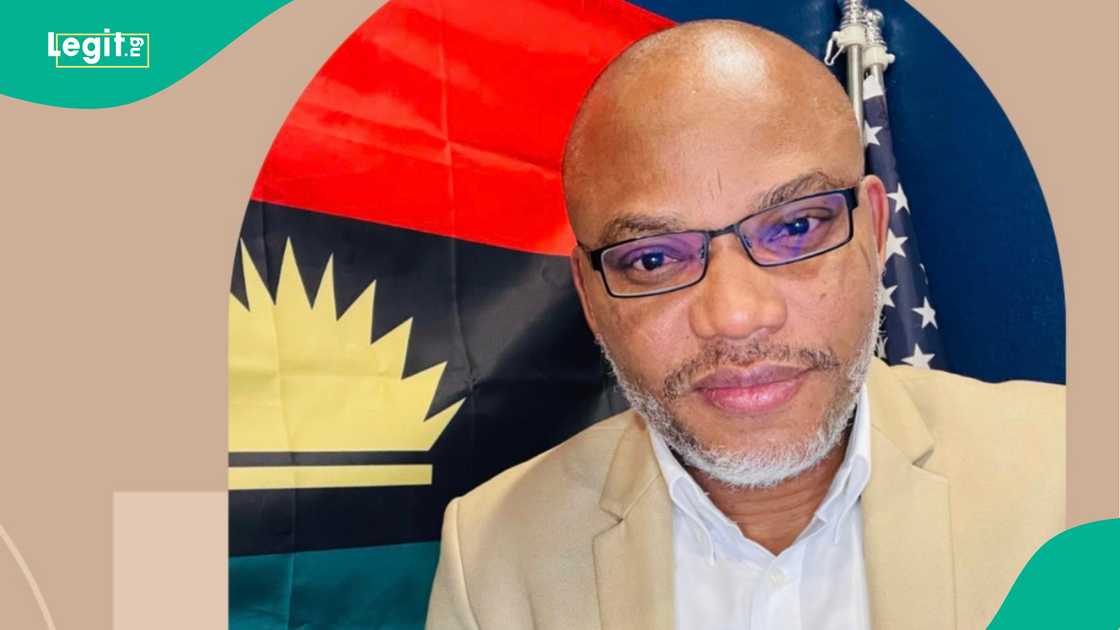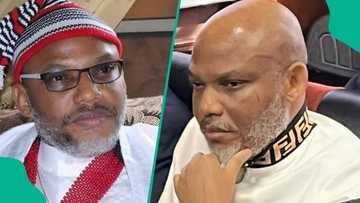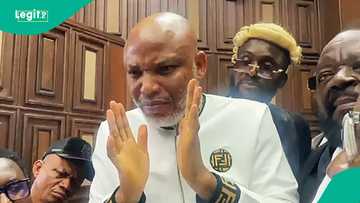Nnamdi Kanu Appears in Abuja Court for Terrorism Case Judgment
- Nnamdi Kanu, leader of the proscribed Indigenous People of Biafra (IPOB), appeared at the Federal High Court in Abuja for judgment in his alleged terrorism case
- Presiding judge James Omotosho had earlier fixed November 20, 2025, for the verdict after Kanu refused to open his defence
- The ruling was scheduled to be broadcast live on Channels TV, TVC and AIT, drawing nationwide attention
Nnamdi Kanu, leader of the proscribed Indigenous People of Biafra (IPOB), arrived at the federal high court in Abuja for the judgment in his alleged terrorism case.
The court session drew significant attention as the matter had been closely followed across the country.

Source: Twitter
Judge James Omotosho set judgment date
Presiding judge James Omotosho had earlier fixed November 20, 2025, as the judgment day after Kanu refused to open his defence. Reports stated that the defendant had already exhausted all legal options afforded to him before the court.
The verdict was scheduled to be aired live on Channels TV, TVC and AIT, allowing the public to follow proceedings directly. This decision was seen as a way to ensure transparency in a case that had generated widespread interest.
Defendant insists conviction would be unlawful
Kanu maintained that convicting him would be unlawful, arguing that there was no charge against him.
He was quoted as saying, “convicting him would be unlawful because there is no charge against him.”
This case continued to attract national and international attention, with observers noting its potential impact on Nigeria’s legal and political landscape.
Nnamdi Kanu’s court case
Nnamdi Kanu’s court case has spanned a decade, marked by arrests, bail, disappearance, and re-arrest, making it one of Nigeria’s most prolonged and politically sensitive trials.
Nnamdi Kanu, member of the proscribed Indigenous People of Biafra (IPOB), first entered Nigeria’s legal spotlight in 2015 when he was arrested in Lagos on charges of treasonable felony and terrorism.
His detention lasted about 18 months before a federal court granted him bail on health grounds. Following his release from Kuje Prison, Kanu’s case took a dramatic turn in 2017 when he disappeared after security forces raided his home in Umuahia, Abia state.
In 2021, Kanu was controversially re-arrested abroad and returned to Nigeria, sparking widespread debate about the legality of his extradition. Since then, he has remained in custody, facing terrorism-related charges, including alleged incitement and running an unlawful organisation.
His legal team consistently challenged the competence of the charges, arguing that some laws underpinning them had been repealed.
Over the years, his trial has been characterised by delays, appeals, and jurisdictional disputes, with the Court of Appeal intervening at several points to expand, suspend, or redirect proceedings. Observers noted that the case tested Nigeria’s justice system, particularly in handling politically sensitive prosecutions.
The saga of Nnamdi Kanu’s legal battles has therefore been defined not only by the charges themselves but also by the political and constitutional questions they raised.

Source: Twitter
Kanu urges appeal court to halt judgment
Legit.ng earlier reported that the detained leader of the Indigenous People of Biafra (IPOB), Nnamdi Kanu, asked the Court of Appeal, Abuja, to stop Justice Omotosho from delivering judgment on his case on November 20, 2025.
Kanu asked the appellate court to stay further proceedings in his trial by Justice Omotosho of the Federal High Court, Abuja.
Proofreading by Funmilayo Aremu, copy editor at Legit.ng.
Source: Legit.ng





